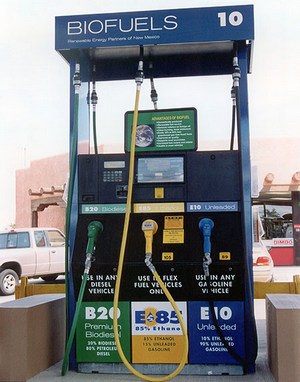![]()

The Biden administration is increasing the amount of ethanol that must be blended into the nation’s gasoline supply but reducing the requirements for the past 2 years due to a plunge in fuel demand during the coronavirus pandemic.
The administration has also announced the USDA will provide $700-million dollars to support 195 biofuel producers in 25 states that faced unexpected market losses due to the COVID-19 pandemic.
EPA administrator Michael Regan says the 2022 level for corn-based ethanol blended into gasoline is 15 billion gallons – adding that it will “help to reduce our reliance on oil and put the Renewable Fuels Program back on track.”
While the new rules increase future ethanol requirements, the EPA is retroactively reducing levels for 2020 by 2.5 billion gallons and for 2021 by 1.2 billion gallons.
The Renewable Fuels Association, an ethanol lobbying group, criticized the retroactive reduction of targets but said the future targets will bring back certainty, help lower gas prices, and set a foundation for future growth.
The EPA is also denying exemptions from ethanol requirements to some oil refineries, saying those refineries had failed to show exemptions were justified under the Clean Air Act.
Most gasoline sold in the U.S. contains 10% ethanol, and the fuel has become a key part of the economy in many Midwest states.
More than 40% of the nation’s corn supply goes for ethanol and biofuel production plants offer jobs in rural areas that have seen steady population declines over the decades.
